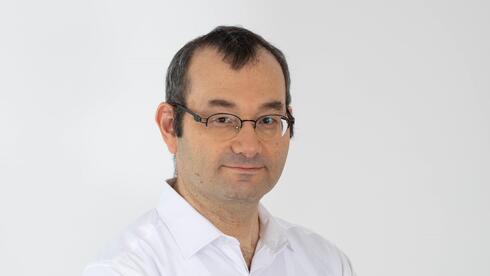
“We anticipate an improvement in the number of tech IPOs in 2025, as well as an increase in M&A activity”
Dafna Kantor, Head of Morgan Stanley Israel, was speaking at the Calcalist and KPMG "Work After Work" event. "The tectonic plates of global politics continue to shift, creating instability," noted Dina Pasca-Raz, partner and head of technology at KPMG Israel.
"Since October 7, it has become clear to all of us how much Israel is influenced by, connected to, and dependent on the West," said Dina Pasca-Raz, partner and head of technology at KPMG Israel, during the Calcalist and KPMG "Work After Work" event. According to her, the past 14 months have highlighted "not only Israel's economic reliance on global markets but also its deep connection to the U.S. and its democratic partners in Europe, Japan, and Australia, all of which are crucial to Israel's position in the world."
"In a world where political, military, and economic power is dispersed across multiple centers, powers with long-standing democratic traditions face extreme social polarization, refugee crises, inflation, and the disruptive influence of social networks that exacerbate these issues. The tectonic plates of global politics continue to shift, creating instability," Pasca-Raz added.
During a discussion at the event, Dafna Kantor, Head of Morgan Stanley Israel, addressed market reactions to political events, saying, "The markets reacted strongly to the distinctive outcome of the election results when Trump won, but one should observe carefully what comes next. Trump spoke extensively about the cost of living during the campaign, but the economic policies he has proposed could potentially lead to inflation. It will be crucial to monitor how quickly his administration implements these policies and to what extent. For instance, raising tariffs, as Trump suggested he would do, will impact the consumers and could lead to price increases. The Fed will be closely monitoring these moves."
On the topic of capital raising in financial markets, Kantor noted, "It's important to highlight that 2024 saw strong activity. Globally and in the U.S., there were more IPOs this year than in 2023. The market has resumed functioning, and we anticipate an improvement in the number of IPOs in 2025, as well as an increase in mergers and acquisitions activity." She added that Trump's plans to reduce the regulatory burden are expected to boost the markets: "Removing uncertainty around antitrust regulations will encourage companies to explore more transactions. Wall Street is very optimistic about this. In 2024, activity levels in Israel were mostly correlated to business activity in the U.S., and we expect this trend to continue in 2025."
Anat Katz, Israel's economic attaché in New York, shared insights into investor sentiment toward Israeli companies in the U.S. over the past year. "The ecosystem continues to embrace and support us, but this support does not always translate into investments. While there’s interest, the question is whether it leads to action. Some investors view the current climate as an opportunity, with valuations dropping, making it a good time to invest. Others, however, are hesitant due to the instability and prefer to hold off for now. Israel’s reputation remains strong, and there is significant potential to build on," Katz explained.
Katz also discussed the trend of Israeli companies relocating to the United States. "We’re seeing more Israeli entrepreneurs moving to the U.S. to establish American companies. Additionally, founders of Israeli companies are increasingly setting up subsidiaries in the U.S. The first phenomenon is seen as brain drain, which is a loss for Israel in terms of taxes and employment—this is regrettable. As for the second trend, we do not view it as problematic because it represents the organic growth of companies in their target market. Without a significant presence in a critical market like the U.S., it’s difficult for these companies to achieve large-scale success. While we don't actively encourage this, we work with and support such companies."
Prof. Amnon Cavari, Head of the Institute for Liberty and Responsibility at the Lauder School of Government, Diplomacy and Strategy at Reichman University, commented on the involvement of high-tech leaders like Elon Musk and Peter Thiel in the U.S. presidential campaign: "There is a clear effort to align with Trump. These leaders studied Trump closely during his presidency and understand his policies. Many of them seek to achieve specific goals, such as lowering taxes. There is also significant discussion about immigration, particularly enabling high-quality immigration, which is something Trump has expressed interest in supporting. This is beneficial for Israelis aiming to work in the U.S."
Gil Arazi, co-founder and managing partner of FinTLV, added, "Today, many investors globally are wary of Israel’s reputation risk and prefer not to expose themselves to it. In Asia, they greatly admire Israeli technology, but they are cautious about the risks associated with our current situation. The same applies to investors in the Nordics. For this to change, Israel must return to a state that fosters innovation and stops harming its democratic values."















